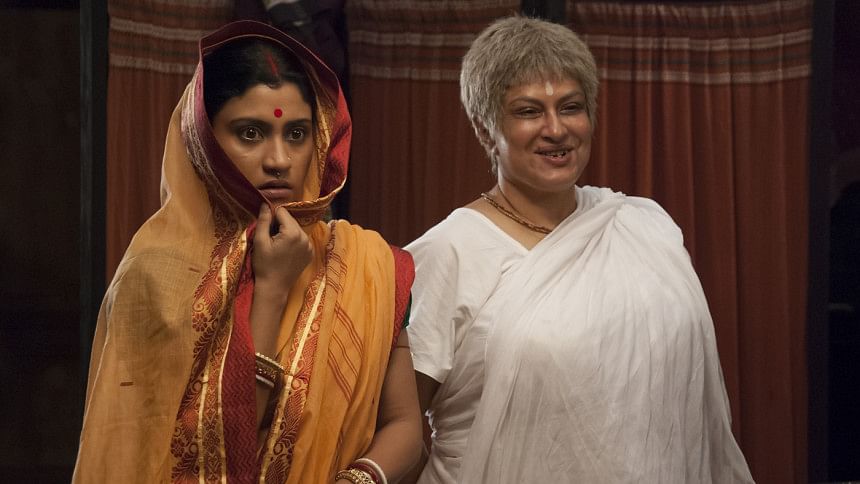10 years of ‘Goynar Baksho’: the triage of female narratives

"Goynar Baksho", a movie written and directed by Aparna Sen, explores the journey of three generations of Bengali women in the backdrop of tumultuous times. Even after ten years of its release, it remains a relevant watch.
The movie was based on the novel "Goynar Baksho" and short story "Rashmonir Sonadana" by Shirshendu Mukhopadhyay. It starts with a refugee family settling in West Bengal. As the family plunges deeply into economic crisis, the newlywed wife Somalata is visited by her dead aunt-in-law, Pishima Rashmoni. The spirit eventually bonds with her, and together they change the course of the family with Somalata's enterprise. The movie ends with Somalata's daughter, Chaitali bonding with Rashmoni, and one sees a continuation of bravery and courage in the family.
Aparna Sen brilliantly reflects the key themes on-screen and it is the epitome of what it means to be a woman behind the camera. Never before have the plights of a widow been shown as delicately. Never before has the power of female entrepreneurs been shown as sensitively.

Konkona Sen Sharma does a fabulous job as a seemingly docile wife who knows to hold her ground. Her expressions of surprise upon finding Pishima, her depictions of growing intimacy with her and portrayals of personal dilemmas make her performance an outstanding one. Legendary actress Moushumi Chatterjee is simply perfect as Pishima Rashmoni. Pishima's anger at the society, her repressed emotions, her humour and her indomitable zeal are perfectly shown by Moushumi.
We see the negative sides of typical conservative families in the movie. Often, they carry pride in a fake family prestige. Somalata's in-laws depended on selling off furniture for feeding themselves, but thought running a store would be disgraceful. Such negative notions still mark our society, and it is significant to challenge familial hierarchy to break out of such toxic ideas. Somalata does this wonderfully, certainly with the help of Pishima, and thus we understand that family members coming together can bring social changes.

The power of female enterprises has often been talked about in academic and political circles. We see a beautiful representation of the fact that in dire economic conditions, women's entrepreneurial efforts can change the lot of an entire family. Somalata's journey is extremely inspiring, her coming up with an initial idea, setting the enterprise, running it on her own and deciding to expand it.
The concept of marriage and women's position and power in a household is deeply analyzed in the movie. We see how a woman's chastity becomes an issue of familial prestige, thereby restricting her autonomy, whereas men are given a free pass even for immorality.
Somalata's daughter, Chaitali has a beautiful bond with Pishima. It is extremely enjoyable watching them talk and hang out. Indeed, knowing familial history can be deeply empowering. Of course, times will change and so will the challenges. But it is always a good idea to learn about inspiring characters in the family who took it upon themselves to change courses.
"Goynar Baksho" is a beautiful amalgamation of emotions. It's a metaphorical tale of the Bengali woman's strive towards independence and empowerment. Real life Pishimas know the restrictions imposed on them were wrong and the Somalatas are powerful enough to create a better future. Indeed, with Bengali women conquering the world, the movie is truly a classic.

 For all latest news, follow The Daily Star's Google News channel.
For all latest news, follow The Daily Star's Google News channel. 









Comments